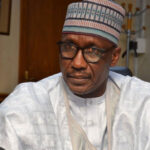Nigeria, Africa’s top oil producer and economic powerhouse, finds itself in a paradoxical struggle. Its citizens are reeling under the weight of an acute fuel scarcity that has plunged the nation into a state of frustration and hardship. Major cities like Kano, Lagos, Abuja, and Borno bear the brunt of the crisis, and ripple effects threaten to destabilise a nation already beset by socio-economic challenges.
For instance, Kano, the bustling commercial hub of Northern Nigeria, was ground zero for the debilitating effects of the fuel crisis. Keke NAPEP riders, the lifeblood of the city’s transportation network, find themselves stranded. Skyrocketing fuel prices or outright unavailability have rendered them unable to work. Residents faced severe mobility restrictions, hindering businesses from operating, children from attending school, and the sick from reaching crucial healthcare facilities.
The fuel crisis has a stronghold on small and medium-sized enterprises (SMEs). These businesses, heavily reliant on generators to combat a chronically unreliable power grid, are being driven to the brink of collapse. The inability to keep generators running leads to job losses and a further deepening of poverty.
The public outcry reached a fever pitch. The streets echoed with the voices of exasperated citizens lamenting the government’s seeming inability or indifference to remedy the situation. The very fabric of society was stretched thin by the relentless pressure of the crisis.
- Police declare UK-based blogger wanted over ‘cyberstalking’
- Cybersecurity levy: Agbakoba to sue Attorney-General, CBN, others
Security patrols across Nigeria’s cities diminished due to fuel shortages, creating a breeding ground for criminal elements to operate with impunity. Economic activity slowed to a crawl – farmers watched their crops wither in the fields, unable to transport them to markets already struggling with inflated food prices.
Places like Benue, Katsina and Taraba, predominantly agricultural states, felt the sting of the crisis even more acutely. Irrigation pumps lie silent due to a lack of fuel, contributing to potential food shortages. The rising cost of basic staples exacerbates food insecurity, placing tremendous strain on families already pushed to their financial limits.
Educational institutions also faced severe disruptions. Students find commuting to schools a near-impossible task, leading to lower attendance rates. Healthcare facilities, already battling unreliable power supply, face mounting operational costs fueled by the crisis, restricting patients’ access to essential treatment.
The fuel scarcity spotlights Nigeria’s perplexing contradiction: abundant oil wealth, yet a chronic inability to satisfy the most basic energy needs of its people. The root causes are a complex tangle of inadequate domestic refining capacity, over-reliance on costly fuel imports, currency weaknesses, and the hotly debated issue of fuel subsidies.
The crisis has fueled calls for radical reforms within Nigeria’s oil and gas sector. Top of the list: a nationwide commitment to building domestic refining capacity to break free from the cycle of import dependency. Economists propose that a transparently managed subsidy system could lessen the burden on consumers, particularly given the contentious history of subsidy removal attempts. Developing alternative energy sources promises to reduce the nation’s overwhelming reliance on petrol, building a more resilient energy infrastructure.
Nigeria’s fuel woes highlight the broader struggles the nation faces. The heart-wrenching experiences of those in Kano and beyond are a distress signal, a plea for solutions. As Nigeria aspires to solidify its position as a global oil leader, it must first demonstrate leadership where it counts most – ensuring the consistent and equitable distribution of its resources across its vast population. Only then can true progress be realised.
The effects of Nigeria’s fuel crisis are not just abstract statistics. They are etched into the weary faces of those standing in endless lines at petrol stations and reflected in the empty classrooms and silent generators.
Consider the story of Aisha, a mother of three in Kano. Her daily trek to secure a few litres of fuel begins in the pre-dawn hours. She balances a restless toddler on her hip while her older children trudge behind, their schoolbooks clutched tightly. By the time she reaches the station, the queue snakes around the block. Fights break out, tempers flare, and often Aisha returns home empty-handed, unsure how to provide her children with their next meal.
This story is not a mere anecdote. It represents the plight of millions of Nigerians trapped in a cycle of relentless struggle brought on by the fuel scarcity. The crisis amplifies existing vulnerabilities, pushing those already on the margins over the edge into dire circumstances.
While the scarcity’s most visible impacts are long queues and crippled transportation, its insidious effects ripple through society, often unseen. In hospitals, the rising price of fuel makes life-saving surgeries prohibitively expensive. Ambulances sit idle outside emergency rooms, unable to respond to desperate pleas for help.
The environmental cost is also staggering. Desperate Nigerians resort to the black market, where adulterated fuel of questionable origin is sold at exorbitant prices. Not only does this put their vehicles at risk, but the unregulated nature of this trade leads to spills and leaks, polluting and degrading the fragile ecosystem.
Nigeria’s fuel crisis is a symptom of deeper systemic failures. The paradox of a resource-rich nation unable to provide for its citizens demands urgent introspection and bold action. It’s time for concrete steps towards comprehensive energy sector reform. The government must prioritise long-overdue investment in domestic refineries to curtail the crippling reliance on imports. A well-regulated and transparent subsidy approach, should one be deemed necessary, is vital, alongside a careful examination of currency and pricing policies.
Moreover, exploring Nigeria’s vast potential in renewable energy is no longer a luxury but a necessity. Solar, wind, and hydro-power offer sustainable energy solutions, creating jobs, reducing pollution, and ultimately lessening the nation’s dependence on volatile petroleum markets.
Dr Salisu Nani Zigau wrote from Abuja

 Join Daily Trust WhatsApp Community For Quick Access To News and Happenings Around You.
Join Daily Trust WhatsApp Community For Quick Access To News and Happenings Around You.



